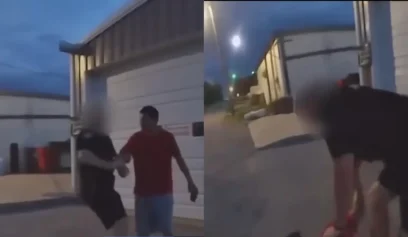
It’s a disquieting end for one of the most egregious miscarriages of justice in the history of a nation that has had scores of them—continuing to the present.
The youngest person executed in the U.S. in the 20th century was quickly sentenced by an all-white jury to the electric chair in 1944 for the murder of two young white girls, seven and 11, after a trial in Alcolu, S.C. The trial lasted less than three hours and the jury came to its decision in 10 minutes.
Seventy years after Stinney’s execution, circuit Judge Carmen Mullen found “fundamental, constitutional violations of due process” in the one-day trial.
“Given the particularized circumstances of Stinney’s case, I find by a preponderance of the evidence standard, that a violation of the Defendant’s procedural due process rights tainted his prosecution,” Mullen told UPI.
Stinney’s family was relieved to hear the good news.
“It was like a cloud just moved away,” Katherine Robinson, Stinney’s 80-year-old sister told NBC News. The retired school teacher said that even though she’s glad the conviction was tossed, the injustice that executed her brother still haunts her.
Advocates for Stinney have been fighting for this day for years.
Steve McKenzie, the lawyer for Stinney’s family, filed for a new trial in Clarendon County claiming that the teenager’s confession was forced and he was subject to the segregated community’s thirst for revenge.
The police coerced a confession out of Stinney without his parents or lawyers present. The police said that Stinney confessed to beating the girls to death with a railroad spike. There was no written record of the confession presented during the trial and no record of it has been found since, according to George Frierson, a historian who has been fighting to clear Stinney.
Mckenzie presented sworn statements from two of Stinney’s siblings who said he couldn’t have murdered the girls because he was with the siblings.
In June, on the anniversary of his execution, a stone memorial was dedicated in Stinney’s memory outside the town of Alcolu, S.C.


